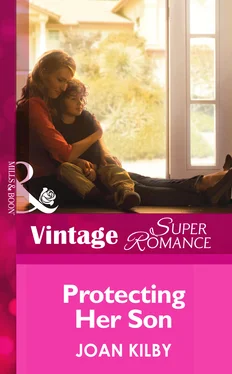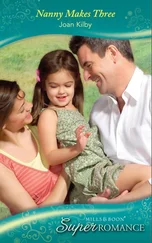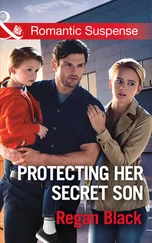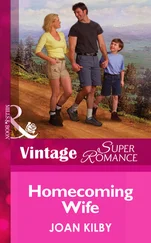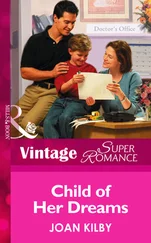“There, you see? I knew we could find something in common.” Riley leaned against his door, as if settling in for a long chat. “What’s your son’s name?”
“Jamie.” She lifted the cup to her mouth, conscious a second later she was exposing her bare ring finger. Sure enough, Riley had noticed—and quickly looked away. For crying out loud, it was the twenty-first century. If there was one thing in her life she wasn’t ashamed of, it was giving birth to her son. “I’ve never been married.” She hoped her cool tone would deter further questions.
Riley’s hand shot up. “Hey, it’s none of my business. Live and let live.”
“You’re older than most rookies,” Paula said, turning the conversation away from herself. “What did you do before you joined the police force?”
“I was a bouncer at a nightclub in Frankston.”
“A bouncer,” she repeated dubiously. Riley was tall and strongly built, in his mid- to late-thirties. His skin had the deeply tanned look of someone who’d spent a lot of time outdoors. Bouncers usually looked pasty, as though they’d crawled out from a cave. She doubted he’d worked nights long term. “Before that?”
He faced forward again, turning his gaze away from her. “Special Air Services Regiment.”
Her eyebrows rose. Impressive. “Were you deployed overseas?”
“I was in Kabul.” It might have been a trick of the dappled light flickering through the ti tree, but a shadow seemed to cross over Riley’s face.
Before she could ask another question, he smiled easily. “So, what sports do you like?”
Maybe they did have something in common. He didn’t like to talk about his past, either.
“I used to play basketball—”
A school bell chimed in the distance. She glanced at her watch. Lunch hour was over. She imagined the kids filing into class. Had Jamie made any friends? Had he eaten the sandwich she’d packed for him?
What if Nick showed up at the school?
Paula shifted restlessly. “I don’t know how much more of this thrilling police work I can handle.” She fiddled with the radar gun settings. “Is this thing even working?”
Riley let a beat go by. “Why are you so tense? I noticed that back at the station. Is something wrong?”
“Nothing’s wrong. I’m not tense.” Tapping the steering wheel, Paula watched the curve in the road.
What if Nick was driving down this highway? He always obeyed the speed limit so he didn’t get pulled over. That could be him coming toward her right now, in that black sedan, and she wouldn’t know. She felt for her gun, snug and reassuring in its holster.
“We’re partners,” Riley said. “Partners are supposed to bond. That means opening up to each other, getting to know and trust each other. Be friendly.”
“All we need to know is that when the going gets tough, we have each other’s back.” Turning to face him, she leaned forward a little, gripping the steering wheel. “Can I? Can I count on you?”
Riley drew back, shaking his head. “Lady, you are tense.”
A bright red Ferrari screamed past so fast the draft shook the patrol car and rattled the branches of the ti tree.
“Finally, some action.” Paula locked in the clocked speed on the radar gun and started the car engine. “Let’s get this jerk.”
CHAPTER TWO
RILEY STACKED HIS guitar case on top of a box of kitchen stuff and carried it from his car up the gravel driveway to the single story weatherboard home. Purple bougainvillea trailed over the veranda, annuals bloomed in loamy beds next to the house.
He set the box on the wood floor in the entry hall and went exploring. It felt weird, walking through the empty rooms. So many years had gone by since he’d lived here, so many changes in both himself and his family. Mum had passed, his father remarried…
The living room was smaller than he remembered, the dining room, tiny. He would need to knock a few walls out. He wandered in and out of his old room, Katie’s room, the master bedroom, peeked into the bathroom, then went down the hall to the kitchen, the center of their family life. At least it had been while his mother was alive.
On the doorframe of the laundry room were the incremental marks where Dad had measured his and Katie’s growth. God, had he ever been that short? He twisted his head sideways to look at the dates.
One stood out from the rest.
The year Mum died he’d been twelve years old, and five foot six inches tall.
There was a big gap after that, as if normal activities had ceased for a time. Riley dragged his gaze away.
The old-fashioned kitchen looked exactly as he remembered. White-painted cupboards, worn linoleum, green-tiled walls up to shoulder height, then yellow paint above that. It was cramped, not enough counter space.
You’d never know a professional cook had worked there. His mother’s weekdays had been spent testing recipes and typing up notes for her next cookbook, her electric typewriter all but lost among the clutter on the counter while two or three pots bubbled on the stove. Her brown hair would be tied back, her brow lightly creased in concentration as she tasted, adding a bit of this or that, then tasted again.
Riley especially loved the dessert section of Mary Henning’s healthy-lifestyle cookbooks. The red ceramic cookie jar was always full when he came home from school. He’d grab a handful of oatmeal and raisin cookies then run outside to play cricket or footy with his mates.
He glanced at the mark on the doorframe and ran his thumb across it, feeling the indentation of the pen in the soft wood. The beginnings of a headache stabbed his right temple.
Why hadn’t he hung around and talked to her more often, just for a few minutes? She’d always stop what she was doing when he or Katie came into the room, ready to chat or give tastings. It pained him to think how he’d brushed her off. He’d give anything now to be able to ask how her day was, if her work was going well. To hear the sound of her voice.
A lump formed in his throat, making swallowing difficult. Kids didn’t think like that, though. At twelve he’d thought his mum would be around forever.
“Riley?” Katie called through the open front door. She’d followed him from his rental unit in her car.
“In the kitchen.” Riley blinked rapidly. Jeez, any minute now he’d break down and cry like a girl.
Katie carried in a box of dishes. To help him move she’d worn old jeans and a shirt with the sleeves rolled up, her dark hair swinging in a ponytail.
“Dad and Sandra just pulled up. The moving truck isn’t far behind—” She set the box on the floor. “Hey, what’s wrong?”
“Nothing.” But he and his little sister were close. She always knew what he was thinking.
Katie’s gaze swept over the kitchen. Her arm stole around his waist. Softly she said, “It almost feels as if Mum’s still here.”
Riley cleared his throat. “This room is too poky. I think I’ll knock this wall down between the kitchen and dining room.” He swept a hand across as if waving a magic wand. “New appliances, new flooring, the works. What do you think?”
“It’s your place now.” Katie gave him a one-armed hug. “Do what you want.”
“Are you sure? By rights, you should get half the house.”
“I’m happy with my little cottage. I—I couldn’t live here.”
The catch in her voice wasn’t only about their mother. Katie had gotten breast cancer in her early twenties and come home to live while undergoing treatment—and to nurse her broken heart after John had abandoned her.
“But I’m glad you’re here,” Katie said. “I think Mum would have liked knowing one of us, at least, was still living in the family home. She was so much a part of this place, especially the kitchen.”
Читать дальше
